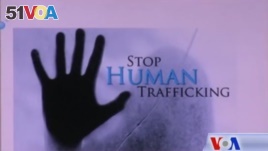Sep 23, 2017
Human trafficking, also known as modern slavery, is a heinous crime that affects nearly every nation in the world. Today, more than 20 million people around the world are estimated to be victims of human trafficking. Yet globally, governments report formally identifying fewer than 67,000 victims, prosecuting fewer than 15,000 suspects, and convicting fewer than 10,000 traffickers.
In an effort to improve those statistics, the U.S. Department of State has granted a ground-breaking 25 million dollar award to the Global Fund to End Modern Slavery, also called simply The Fund.

Human Trafficking
Through an open and transparent selection process, the State Department's Office to Monitor and Combat Trafficking in Persons made the award to The Fund under its Program to End Modern Slavery, which launched earlier this year. The initiative reflects the United States' commitment to increase U.S. and global funding to reduce the prevalence of modern slavery in specific countries and regions. It will also help leverage U.S. funds to build a resource base with contributions from other governments and private donors and develop a global platform of data, analysis, and lessons learned to inform and improve efforts to combat modern slavery around the world.
Reducing the prevalence of human trafficking globally should be a shared effort. That is why this initiative seeks to raise commitments of 1.5 billion dollars in support from other donors. With the 25 million dollar State Department grant, the Global Fund to End Modern Slavery will invest over the next three years in projects to combat all forms of modern slavery that align with the “3Ps” of the global anti-trafficking framework: prosecution, protection, and prevention.
”The consequences of our failure to act in this area has so many other negative impacts around the world," said U.S. Secretary of State Rex Tillerson at the June 27 launch of the 2017 Trafficking in Persons Report. He continued: "It breeds corruption; it undermines rule of law; it erodes the core values that underpin a civil society. Transnational criminal networks also – whether they be drug dealers, money launderers, or document forgers – are partly enabled by participating in human trafficking activities as well.”
That's why the United States is committed to leading the fight against human trafficking. As Secretary Tillerson noted, "We seek justice for victims and accountability for offenders.”